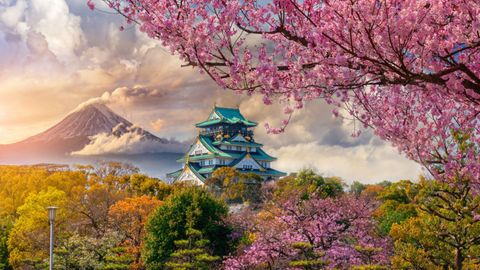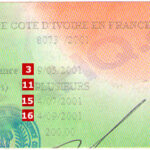India, a country rich in history, culture, and natural beauty, attracts millions of visitors annually, including Japanese citizens. Whether you are traveling for tourism, business, medical reasons, or education, obtaining an Indian visa is a necessary step for Japanese nationals. The Indian government offers various types of visas to cater to different travel purposes, making it relatively straightforward for Japanese citizens to apply. INDIAN VISA FOR JAPANESE CITIZENS This article provides a detailed guide on the types of Indian visas available for Japanese citizens, the application process, and essential tips for a smooth travel experience.
Types of Indian Visas for Japanese Citizens
Indian visas are offered in several categories, depending on the purpose of travel. Japanese citizens can apply for the following types of visas:
- Tourist Visa
The Tourist Visa is the most common visa for Japanese nationals visiting India for leisure, sightseeing, or visiting family and friends. The Indian government offers an e-Tourist Visa (eTV) for Japanese travelers, which allows stays of up to 90 days. This visa is valid for entry at designated airports and seaports. - Business Visa
For Japanese citizens visiting India for business-related activities, such as meetings, conferences, or establishing business connections, a Business Visa is required. This visa may be valid for up to five years and allows multiple entries. - Medical Visa
Japan has a well-established healthcare system, but some Japanese citizens prefer to seek medical treatment in India due to its affordable and high-quality medical services. A Medical Visa is available for individuals traveling for medical treatment, and accompanying family members can apply for a Medical Attendant Visa. - Student Visa
Japanese students planning to study in India must apply for a Student Visa. This visa is granted for the duration of the course and can be extended in certain circumstances. Students must be enrolled in a recognized Indian educational institution. - Employment Visa
If a Japanese citizen plans to work in India, they must apply for an Employment Visa. The Employment Visa is granted for the duration of the employment contract and may be extended, depending on the terms of the contract. - Conference Visa
Japanese citizens attending an international conference or seminar in India can apply for a Conference Visa, a short-term visa granted specifically for this purpose.
How to Apply for an Indian Visa
There are two main ways for Japanese citizens to apply for an Indian visa: through the e-Visa system or by submitting a traditional visa application at the Indian Embassy or Consulate.
Option 1: e-Visa Application
- Visit the e-Visa Portal: Japanese citizens can apply for the e-Tourist Visa, e-Business Visa, or e-Medical Visa through the Indian government’s e-Visa portal.
- Complete the Application Form: Fill in the required information in the online application form. Ensure that all details match those in your passport.
- Upload Documents: Submit scanned copies of your passport, a recent photograph, and any other documents required for your visa type, such as a business invitation letter or medical records.
- Pay the Visa Fee: The fee for e-Visa applications can be paid online through credit or debit cards.
- Receive the Visa: Once the application is approved, the e-Visa is sent to your email. Print the e-Visa and carry it with you when you travel to India.
Option 2: Traditional Visa Application
INDIAN VISA FOR LATVIAN CITIZENS For visas that are not eligible for the e-Visa system or if you prefer to apply in person, you will need to apply through the Indian Embassy or Consulate in Japan.
- Fill Out the Application Form: Download the visa application form from the Indian Embassy website or collect it in person.
- Gather Required Documents: Prepare the necessary documents, including your passport, passport-sized photographs, and any additional documents specific to your visa type.
- Submit the Application: Submit the completed form and documents at the Indian Embassy or Consulate.
- Pay the Visa Fee: Visa fees can be paid in person at the embassy or via bank transfer.
- Wait for Processing: The processing time for traditional visa applications typically takes 7-10 business days.
- Collect Your Visa: Once approved, you can collect your visa or have it mailed to your address.
Documents Required for Indian Visa
The following documents are generally required when applying for an Indian visa:
- A valid passport with at least six months of validity remaining from the date of arrival in India.
- A recent passport-sized photograph in the specified format.
- Proof of travel plans, such as flight bookings or hotel reservations.
- Financial documents proving that you can support yourself during your stay in India.
- Additional documents, such as an invitation letter for business or medical purposes, or an admission letter for students.
Processing Time and Fees
- e-Visa: Processing usually takes 3-5 business days for most applications.
- Traditional Visa: Processing time for a regular visa application typically takes 7-10 business days, although it may take longer during peak seasons or depending on the type of visa.
- Visa fees vary based on the type of visa, its duration, and the number of entries allowed. Ensure you check the latest fee structure on the official Indian visa website or the embassy.
Travel Tips for Japanese Citizens Visiting India
- Prepare for Health Requirements: Ensure you are vaccinated against recommended diseases before traveling to India.
- Currency Exchange: The local currency in India is the Indian Rupee (INR). It is advisable to carry some cash and exchange currency at authorized exchange counters or banks.
- Cultural Sensitivity: India is diverse, and understanding cultural norms, such as dress codes and local customs, can help ensure a respectful visit.
- Stay Safe: Familiarize yourself with emergency numbers and keep your belongings secure.
Conclusion
Applying for an Indian visa as a Japanese citizen is a straightforward process. With options for both e-Visas and traditional visa applications, traveling to India has become easier than ever. Whether you’re visiting for tourism, business, medical treatment, or study, proper documentation and a little planning will ensure a smooth visa application experience, allowing you to explore India’s incredible sights and culture.



